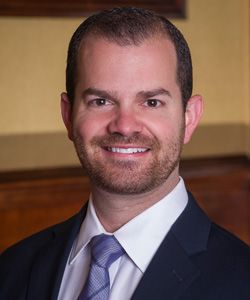Shoulder Replacement Surgery
What is Shoulder Replacement Surgery?
If you suffer from chronic shoulder pain that affects your ability to perform daily activities, go to work, or play sports, then you may be a candidate for shoulder replacement surgery.
MidAmerica’s experienced shoulder specialists offer premium solutions for shoulder replacement candidates. The award-winning physicians at MidAmerica’s Total Joint Clinic are experts in the field of shoulder replacement surgery and offer treatment at our Palos Hills and Mokena locations.
Shoulder Anatomy
The shoulder is made up of three bones: the upper arm bone called the “humerus,” the shoulder blade called the “scapula” and the collarbone called the “clavicle”.
The shoulder is a ball-and-socket joint that allows us to move our arm freely in all directions. The socket is called the “glenoid”.
Joints between bones are able to glide effortlessly due to articular cartilage, a smooth substance that protects and lubricates the joints where bones meet.
Shoulder replacement surgery, as performed by a MidAmerica shoulder specialist, removes damaged parts of the shoulder and replaces them with artificial components, known as a prosthesis, which can consist of either two or three parts, depending on the surgery required:
- A metal humeral prosthesis may replace the existing humerus.
- A metal humeral head prosthesis may replace the humeral head (ball joint).
- A plastic glenoid component may replace the surface of the glenoid socket.
The most common causes of shoulder pain include:
- Osteoarthritis
- Rheumatoid Arthritis
- Injury
- Rotator Cuff Tears
- Avascular Necrosis
Examination at MidAmercia
The fellowship-trained physicians at MidAmerica’s Total Joint Clinic are dedicated to diagnosing and treating your shoulder pain using modern nonoperative and operative techniques. Your physician will:
- Ask you to indicate the severity of your shoulder pain on a pain scale.
- Ask questions regarding any other health conditions you may have.
- Palpate all over the shoulder feeling for pain and tenderness, deformities and abnormal muscle development.
- Conduct a physical exam to determine the range of motion in your shoulder, which may involve moving your arm in a certain way to demonstrate where the pain originates.
- Order a blood test to further evaluate the cause of your shoulder pain. An elevated white blood cell count raises suspicion of infection in your shoulder.
- Order an X-Ray or MRI to determine if there are any problems such as, cartilage deterioration or a rotator cuff tear, with the structure of your shoulder.
Treatment at MidAmerica’s Total Joint Clinic
A variety of non-surgical treatments exist for managing shoulder pain, some of which include:
If you suffer from severe shoulder pain and non-surgical methods have not worked in managing your symptoms, you may be a candidate for shoulder replacement surgery.
Although shoulder replacement surgery is less common than knee or hip arthroplasty, it is just as effective in treating and relieving joint pain. Around 53,000 people have shoulder replacement surgery annually in the US according to the American Academy of Orthopaedic Surgeons.
Conventional shoulder replacement surgery involves the removal of damaged bone or cartilage and the implementation of a prosthesis that mimics the normal anatomy of the shoulder. A plastic “cup” is fitted into the glenoid socket, while a metal ball— mimicking the ball joint at the top of the humeral bone—is attached to the humerus.
A conventional procedure relies on the rotator cuff to function properly. In a patient with a large rotator cuff tear, these muscles no longer function.
In a reverse total shoulder replacement, the socket and metal ball are switched. The metal ball is fixed to the glenoid socket while the plastic cup is fixed to the upper end of the humerus. This is a more effective procedure for patients with cuff tear arthroplasty, as it relies on the deltoid muscle, instead of the rotator cuff, to power and position the arm.
Immediately after surgery, your physician will prescribe antibiotics to prevent infection. Most patients go home from the hospital 1-2 days after surgery.
Your physician will assign you a physical therapy routine to start immediately after your return home. These exercises, when performed alongside one of MidAmerica’s Certified Physical Therapists, will increase flexibility, strength, and range of motion over time.
While certain activities such as driving and sports will be restricted for the first 1-3 months, most patients are able to return to normal activities without pain within six months.
At MidAmerica, we aim to provide the highest quality care marked by courtesy, respect and integrity. To make an appointment at our Total Joint Clinic, or to learn more about MidAmerica’s Palos Hills and Mokena clinics and the different treatment options available to you, call (708) 237-7200. Most insurance plans are accepted.
If you would like to learn more about shoulder replacement surgery, or other orthopaedic conditions, be sure to visit our blog.





